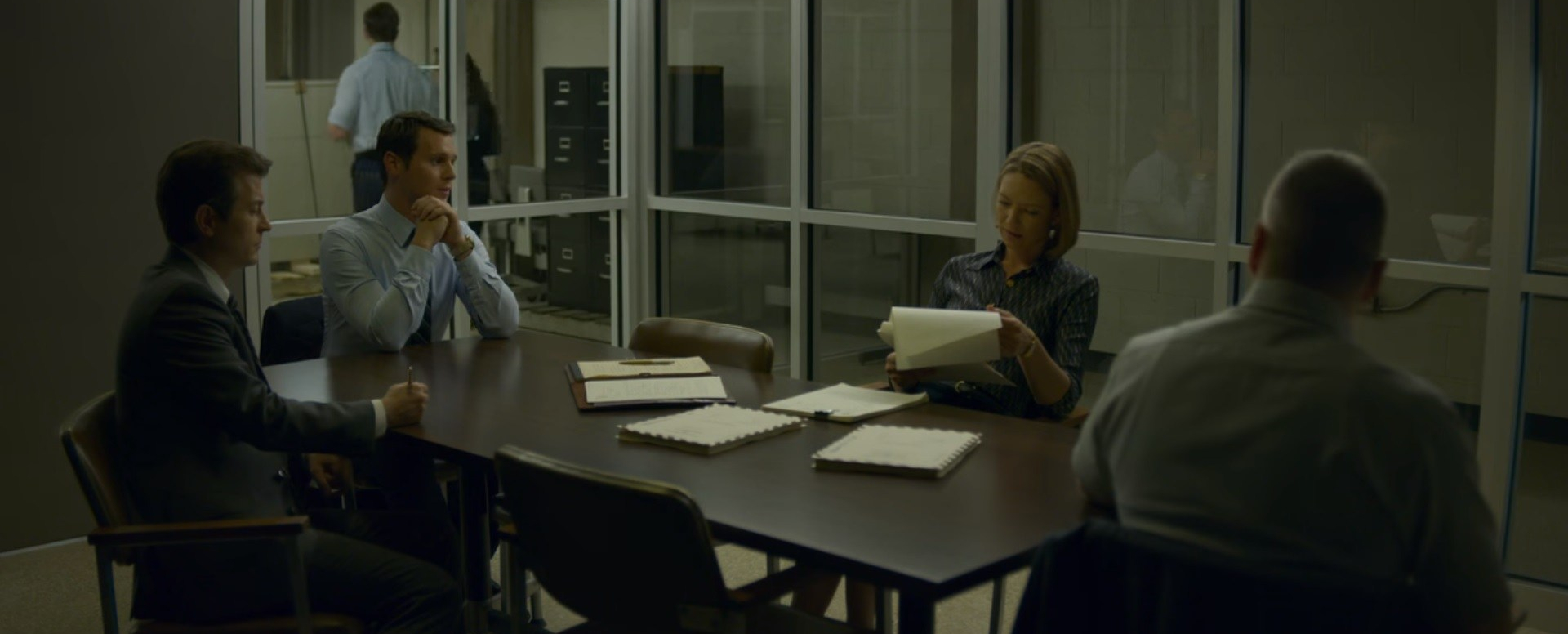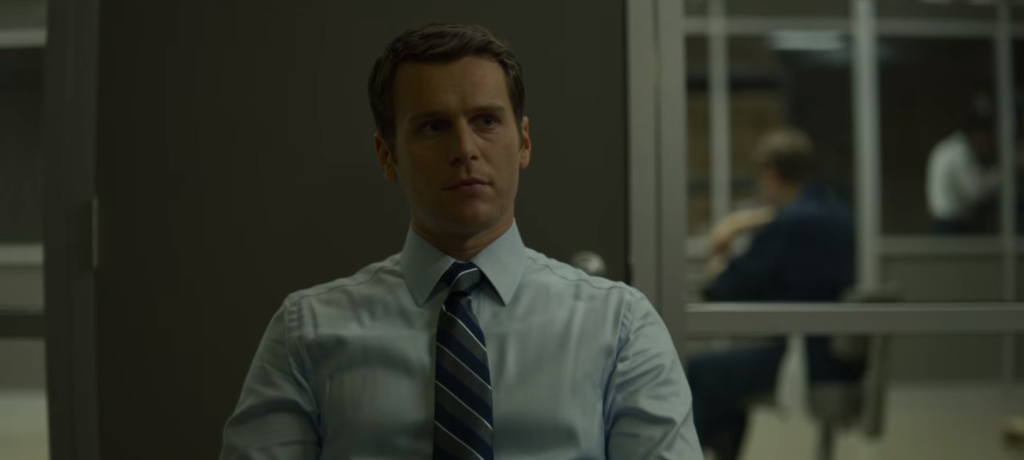
If I had to choose just one emotion to describe Mindhunter, it’s “somber,” which is great, because I can’t think of any others. The show is emotionally reserved and its characters are emotionally intelligent. In a romantic subplot, there are a few instances where characters shrug off accidental slights that would’ve made for shouting matches on other shows. Based on the commentary I’ve read on this season, the reservedness may be working against the show, clashing with what feels like a dip into arch with Tench’s subplot. His adopted son was at the scene of a grisly murder, and has been socially regressing ever since, and more than one observer cited this for being too coincidental or too contrived. This is the show where the action comes from the dialogue, less like a Tarantino movie and more like math. Any plot contrivance feels like contrivance.
And so, the strength of Mindhunter’s second season might not be in its character work (your mileage may vary — I know mine does), but in its intricate design. It isn’t like other shows — other procedurals especially — dispensing less with the traditional language of drama and conflict. No, it’s a machine. The serial arc of its second half is so tightly wound, so exhausting, that the arrest of a promising suspect in a penultimate moment is a tremendous release. I actually cried, and I think it’s just because I was so stressed out by the preceding events, whose repetitiveness — a usual structural no-no — was bleakness with uncomfortable rhythm. “Another body,” being a constant refrain, received accordingly by the cast’s naturalistic acting (naturalistic or just monotone? I love it either way). And yet the next beat of story, the final hour of the season, is partly an interrogation of the catharsis.
Everyone wants this case to be over. It’s reached Trumpworld 2019 levels of absurdity, whether it’s the cop not logging evidence or the district attorney not persecuting a black man or Williams’s antics. During these sequences, I thought a lot about this year’s similarly pitch black Chernobyl, another true crime story and study of how all the little things add up to tragic consequence. But even with the odds stacked against a conviction — an arrest even — we’re meant to pause there. Is that really the road we want to go down? Ford’s claim that the unsub is a black man is insistent even by his standards, and quickly uncomfortable. Jim Barney is invaluable here, the role itself carefully circumnavigating “it’s okay, I’m black” as wellspring for reflective dialogue. His side eye, his prompting Ford to consider the racial bias, doesn’t come from a place of offense but the same investigative passion as Ford’s, not that offense is any less legitimate (just comes off as thorny on TV, depending on the eyes watching). I was also reminded of American Crime Story: The People v. OJ Simpson with this complication of race relations and high-profile homicide.
But where the good guys at least had the final word on the unforgettable first season of American Crime Story, a bit of a moral lesson in the final face-off, I’m not sure what that moral was in Mindhunter’s second season. There is no closure here, a not-rare symptom of true crime, like in Bong Joon-ho’s Memories of Murder and Fincher’s own Zodiac. But given my emotional state after the final credits rolled, I’m not sure having a point is the point.
I go into Mindhunter because procedure is a funny fascination of mine, making then the development of procedure irresistible, but I’ve come out on the other side with an unexpected feeling. Despite the characteristic dryness, almost detachment (I love how boring the show can be), we reckon with humanity at the end of a frantic spiral. Here in this abstraction that is the community of 1970s Atlanta, its desperate plight is weighed by a cosmic fact: no matter what, the institutional complications of the American city, of race, of poverty, will always provide the warmest, murkiest weeds for shrouded tragedy, not all of it “newsworthy.” Imperfect, troubling justice is our only answer, portending a future where the hunting of minds is commandeered by bureaucracy and politics, whose racial bias may not even get a side eye.


Leave a comment